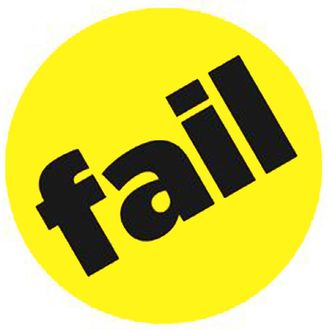
In an email to his staff Tuesday night, BuzzFeed editor-in-chief Ben Smith defended his decision to publish a 35-page report full of salacious claims about Donald Trump’s relationship with Russia and interest in water sports. Assembled by a former British agent, the report was included in intelligence briefings given to President Obama and Trump last Friday, CNN reported. NBC News says Trump was actually not briefed on the documents, which the president-elect confirmed at his Wednesday press conference.
In any case, BuzzFeed determined that CNN’s report was reason enough to publish the documents. Smith defended that decision like this: “Our presumption is to be transparent in our journalism and to share what we have with our readers. We have always erred on the side of publishing. In this case, the document was in wide circulation at the highest levels of American government and media.”
He added, “Publishing this document was not an easy or simple call, and people of good will may disagree with our choice.”
He was right about that. Criticism of the choice to publish the report has been swift, and not just from Trump partisans.
The Washington Post’s Erik Wemple, for one, takes issue with BuzzFeed’s claim that it’s allowing readers to decide what to make of the information in the dossier. “Americans can only ‘make up their own minds’ if they build their own intelligence agencies, with a heavy concentration of operatives in Russia and Eastern Europe,” Wemple writes. The document, he added, is “unverified — meaning that it requires further investigation. BuzzFeed has started that process and pledges to continue pursuing it. So why post the documents now?”
Margaret Sullivan, also of the Washington Post, writes that Smith has plunged “down a slippery ethical slope from which there is no return.”
“It’s never been acceptable to publish rumor and innuendo. And none of the circumstances surrounding this episode — not CNN’s story, not Trump’s dubious history with Russia, not the fact that the intelligence community made a report on it — should change that ethical rule.”
At The Atlantic, David A. Graham writes that publishing the documents “represents an abdication of the basic responsibility of journalism.”
“The reporter’s job is not to simply dump as much information as possible into the public domain, though that can at times be useful too, as some of WikiLeaks’ revelations have shown. It is to gather information, sift through it, and determine what is true and what is not. The point of a professional journalist corps is to have people whose job it is to do that work on behalf of society, and who can cultivate sources and expertise to help them adjudicate it.”
John Podhoretz, editor of Commentary and neocon Never Trumper, writes in the New York Post, “At a moment when journalists are up in arms about ‘fake news,’ what BuzzFeed has done here is take fake news to a new level.”
David Corn of Mother Jones, who reported on the existence of the dossier in late October, tweeted that publishing it was unfair to Trump.
Many other journalists tweeted their discontent with BuzzFeed’s decision to publish this content.
After the end of Trump’s Wednesday-afternoon press conference, which included an attempt by the president-elect to conflate the BuzzFeed and CNN reports, CNN released a statement seeking to distance itself from BuzzFeed’s “decision to publish unsubstantiated memos.”
Jake Tapper also went to bat for his network on the air, calling BuzzFeed “irresponsible.”
What does Ben Smith make of the criticism? In an interview with Huffington Post’s Michael Calderone, he said he stands “by the decision to publish a newsworthy document.”





























